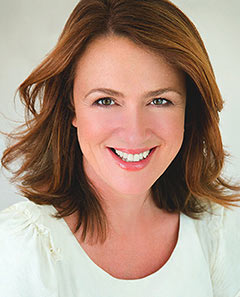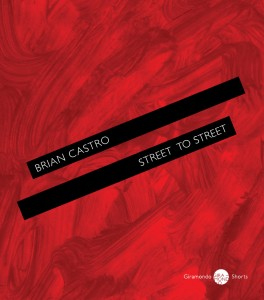 Despite the above quibbles, I wouldn’t hesitate in recommending A Miracle of Rare Design because it really is an imaginative adventure that demonstrates beautifully how gods are made. It’s a story that highlights all that it means to be human. It’s a story of hunger, and need and hope—and it’s a story of one man’s obsessive quest to have it all.
Despite the above quibbles, I wouldn’t hesitate in recommending A Miracle of Rare Design because it really is an imaginative adventure that demonstrates beautifully how gods are made. It’s a story that highlights all that it means to be human. It’s a story of hunger, and need and hope—and it’s a story of one man’s obsessive quest to have it all.
Interview with Brian Castro
Author Brian Castro reads from and talks about his latest novel Street to Street, his three protagonists, the transformative power of the imagination, the notion of failure, melancholy, the relationship between fiction and non-fiction, the fuzziness of genre, and lots more.
Interview with Nicky Pellegrino
 The author of The Food Of Love Cookery School talks about her new book, her transition from journalist to author, her work in progress, her writing process, her favourite authors, advice for other writers, her inspiration, her research, and lots more.
The author of The Food Of Love Cookery School talks about her new book, her transition from journalist to author, her work in progress, her writing process, her favourite authors, advice for other writers, her inspiration, her research, and lots more.
Interview with Marcy Luikart
 The author of River Braids talks about her new novel, about how she started writing, her inspirations, her writing style, her themes, her biggest challenges, and more.
The author of River Braids talks about her new novel, about how she started writing, her inspirations, her writing style, her themes, her biggest challenges, and more.
Interview with Paddy Bostock
The author of Foot Soldiers talks about his latest novel, how he began writing, about the basis for his book, influences, his other work and work-in-progress, his striking covers, his challenges and lots more.
A review of The Bostonians by Henry James
 The Bostonians, a relatively early HJ novel, was published in book form in 1886. (It was originally serialized — as common in the Victorian era — in a magazine over 1885-86.) HJ was born in New York City, but took up residence in England, and had not been to the USA since about 1880. (He did not re-visit the USA until 1905.) With all the detailed descriptions of Boston, New York City, and Cape Cod, I would say that the work is a kind of tour de force, considering how many years HJ had been removed from the locales of the story. One feels very present in the 19th-century streets and landscapes that he writes about.
The Bostonians, a relatively early HJ novel, was published in book form in 1886. (It was originally serialized — as common in the Victorian era — in a magazine over 1885-86.) HJ was born in New York City, but took up residence in England, and had not been to the USA since about 1880. (He did not re-visit the USA until 1905.) With all the detailed descriptions of Boston, New York City, and Cape Cod, I would say that the work is a kind of tour de force, considering how many years HJ had been removed from the locales of the story. One feels very present in the 19th-century streets and landscapes that he writes about.
A review of Cog by K Ceres Wright
 We are all simply cogs in a global machine, and nowhere is this more apparent than in Cog. At first glimpse it is a somewhat ordinary story of revenge, greed and power set against a futuristic backdrop. And yes, at its core, Cog is a classic story of family dysfunction with some James Bond-esque thrills and rather groovy technology thrown in.
We are all simply cogs in a global machine, and nowhere is this more apparent than in Cog. At first glimpse it is a somewhat ordinary story of revenge, greed and power set against a futuristic backdrop. And yes, at its core, Cog is a classic story of family dysfunction with some James Bond-esque thrills and rather groovy technology thrown in.
Don’t Let the Wind Catch You with Aaron Paul Lazar
The author of Don’t Let the Wind Catch You reads from and talks about his newest LeGarde mystery book, his protagonist Gus, his other mystery series and the lure of the genre for him, the secrets of his proflic output, the intersection…
A review of Street to Street by Brian Castro
 Though Street to Street often presents a bleak view, with university bureaucrats stifling creativity, talent thwarted and wasted, and beauty and love destroyed through lack of focus, it does seem to me to end on a very positive, and deeply tender note. The real richness of this novel begins and ends with language and the power that attentiveness to it has to overcome the foibles and day-to-day emptiness that seems to take hold of the two protagonists in this book.
Though Street to Street often presents a bleak view, with university bureaucrats stifling creativity, talent thwarted and wasted, and beauty and love destroyed through lack of focus, it does seem to me to end on a very positive, and deeply tender note. The real richness of this novel begins and ends with language and the power that attentiveness to it has to overcome the foibles and day-to-day emptiness that seems to take hold of the two protagonists in this book.
Review of The Wicked Girls by Alex Marwood
 The sensationalism of the tabloids further degrades society. Kirsty is low on the journalism food chain and must write what fits her newspaper’s slant: “Her job is to find fifteen hundred words of the sort of Sunday feature that makes readers feel better about their own lives…No town where a killer is on the loose is allowed to be a nice town; it’s an unwritten law.” Later in the novel, when a serial killer is caught, the media whips the public into such a frenzy that a mob pursues his common-law wife after she visits him in jail.
The sensationalism of the tabloids further degrades society. Kirsty is low on the journalism food chain and must write what fits her newspaper’s slant: “Her job is to find fifteen hundred words of the sort of Sunday feature that makes readers feel better about their own lives…No town where a killer is on the loose is allowed to be a nice town; it’s an unwritten law.” Later in the novel, when a serial killer is caught, the media whips the public into such a frenzy that a mob pursues his common-law wife after she visits him in jail.